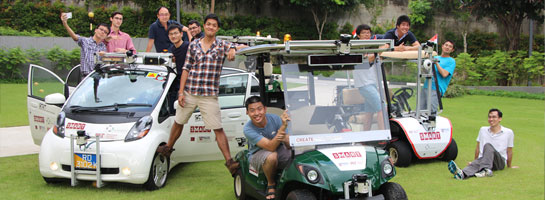




 Dr Chionh Yok Hian (left) and Prof Peter Dedon explain that the ultimate goal is to cut down the time we need to treat TB.
Dr Chionh Yok Hian (left) and Prof Peter Dedon explain that the ultimate goal is to cut down the time we need to treat TB.
Scientists at SMART [新加坡-麻省理工学院科研中心] have made a fundamental discovery of a mechanism that helps cells to rapidly divert resources in emergency situations, rendering the bacteria dormant. Many bacteria, including strains that cause TB, use this mechanism to enter a latent-like state (non-replicating persistence) which allows them to survive in hostile environments when deprived of oxygen or nutrients. This dormant state renders antibiotics ineffective as current drugs work on the premise of killing bacteria that are active and growing.
This discovery in systems biology, led by 32-year-old Singaporean researcher, Dr Chionh Yok Hian [蒋育贤] translates to possibilities that could:
a. Target this pathway with new drugs/antibiotics;
b. Reverse drug resistance;
c. Prevent TB infection (as an example) from going into its latent state so as to prevent it from flaring up in old age (estimated 29% of Singaporeans have Latent TB Infection);
Dr Chionh, SMART Postdoctoral Associate, was the lead author of the paper “tRNA-mediated codon-biased translation in mycobacterial hypoxic persistence” which was published in the prestigious Nature Communications in Nov 2016. His research started in 2010.
See News Release above, MIT News or The Straits Times coverage for more.